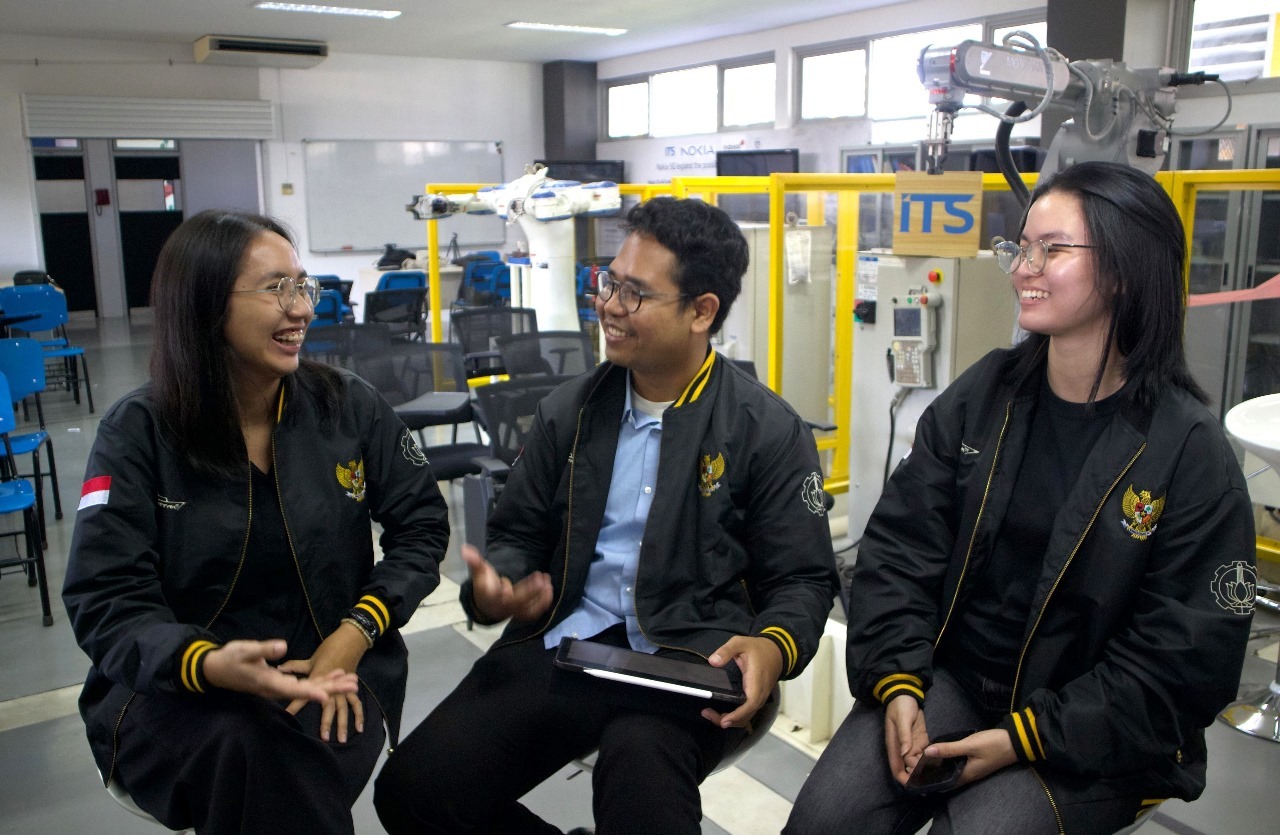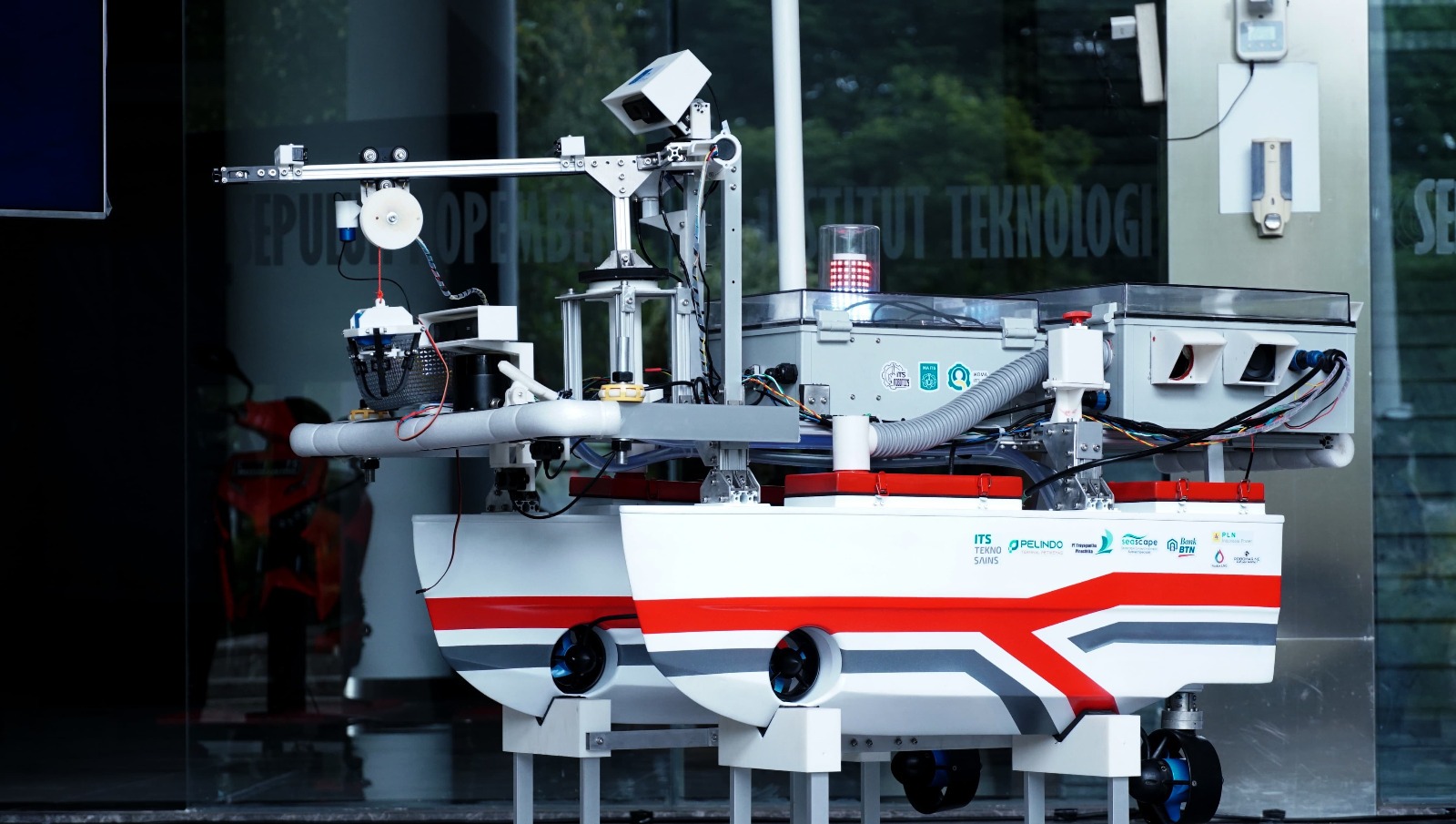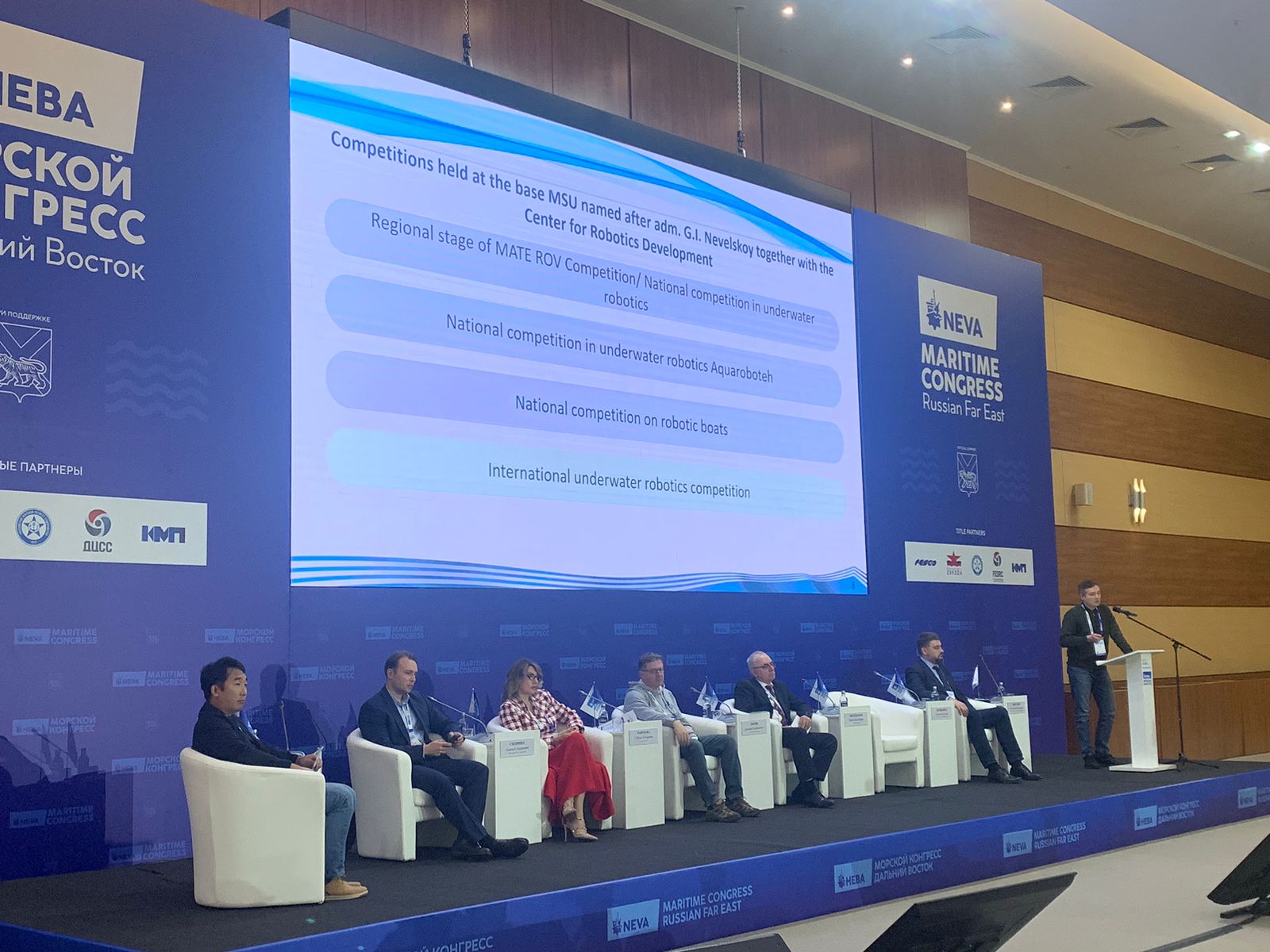Representing Indonesia, Barunastra ITS Promotes ASV Innovation at International Maritime Congress

Representatives of the Barunastra ITS team presenting the ASV innovation online at the ongoing NEVA Maritime Congress in Russia.
ITS Campus, ITS News — The world’s largest international maritime congress, NEVA Maritime Congress, was held again in Russia on Friday (31/5). Being the only delegation representing Indonesia, the Barunastra team of Institut Teknologi Sepuluh Nopember (ITS) raised the topic of Autonomous Surface Vehicle (ASV) innovation and its development in the Indonesian research world.
The congress, themed Autonomous Navigation and Marine Robotics, brought together more than 1,200 international participants and renowned maritime experts. This hybrid activity is presented as an opportunity for maritime activists to review various issues in the maritime world.
General Manager of Barunastra ITS I Made Vibra Dananjaya said, this year Barunastra ITS showed off through the topic Advancing Autonomous Maritime Solutions: Insights from the BARUNASTRA ITS RoboBoat Team’s, ASV Development in Indonesia which was presented online. Simply put, the team born in 2012 explained about the application of ASV innovation and how Barunastra ITS became one of the pioneers in it.
In his presentation, the young man who is familiarly called Vibra explained, ASV is an unmanned ship that can operate without human intervention. This autonomous ship is able to navigate and collect sensor data independently. “One of our ASV vessels is the Nala Proteus 2.0,” he explained.

Barunastra ITS’ Autonomous Surface Vehicle (ASV) ship, Nala Proteus 2.0 presented at the NEVA Maritime Congress.
Besides being able to move independently, Vibra added, this autonomous system is also one of the answers to the idea of a blue economy envisioned by Indonesia. The presence of ASVs opens up opportunities for a more sustainable maritime world through several environmentally friendly components.
The student of the ITS Marine Engineering Department revealed that the application of ASVs can help reduce pollution and fuel consumption of a ship. In addition, one of the other advantages is that it can utilise renewable energy such as batteries. “It is in line with the goal of the blue economy to realise sustainable management and protection,” he said.
Meanwhile, exploring the ASV ship designed by the Barunastra team deeper, Vibra also explained the components and advantages of the Nala Proteus 2.0. With the ability to navigate independently, Nala Proteus 2.0 is able to measure the safety of the ship when tested through obstacles.
Not only that, the ship is also equipped with intelligent visual processing, which is two pairs of cameras that help the ship capture better quality visual data. In addition, Nala Proteus 2.0 also has multi-modal perception. “It is a system that makes the ship able to interpret data from sensors,” said the 2021 student.

NEVA Maritime Congress held in the Russian city of Vladivostok on a hybrid basis
More specifically, the team’s 12-year-old ASV was also refined through its reliability in cognition and autonomy as well as localisation and positioning. “We also designed various other supporting components to maximise the reliability of Nala Proteus 2.0,” Vibra explained.
The presentation further explained that if this system is realised, ASVs have a lot of potential in countries with dominating maritime areas. Among others, for hydrographic surveys, marine environmental monitoring, oceanographic research, and maritime patrols.
The reception of the ASV system by the NEVA Maritime Congress participants made Vibra and the team hope that this innovation can be applied to maximise the world’s maritime potential. In addition, he hopes this step can open up cooperation opportunities for ITS and Russia. “Hopefully the presence of ASV can lead Indonesia to progress and achieve the goal of becoming the world’s maritime axis,” he said optimistically. (ITS Public Relations)
Reporter: Hibar Buana Puspa
Translator: I Gusti Agung Jaya Hiswara
Related News
-
ITS Wins 2024 Project Implementation Award for Commitment to Gender Implementation
ITS Campus, ITS News —Not only technology-oriented, Institut Teknologi Sepuluh Nopember (ITS) also show its commitment to support gender
May 31, 2024 19:05 -
ITS Professor Researched the Role of Human Integration in Sustainable Architecture
ITS Campus, ITS News –The developing era has an impact on many aspects of life, including in the field
May 31, 2024 19:05 -
ITS Sends Off Group for Joint Homecoming to 64 Destination Areas
ITS Campus, ITS News — Approaching Eid al-Fitr, the Sepuluh Nopember Institute of Technology (ITS) is once again facilitating academics who want
May 31, 2024 19:05 -
ITS Expert: IHSG Decline Has Significant Impact on Indonesian Economy
ITS Campus, ITS News — The decline in the Composite Stock Price Index (IHSG) by five percent on March 18,
May 31, 2024 19:05
